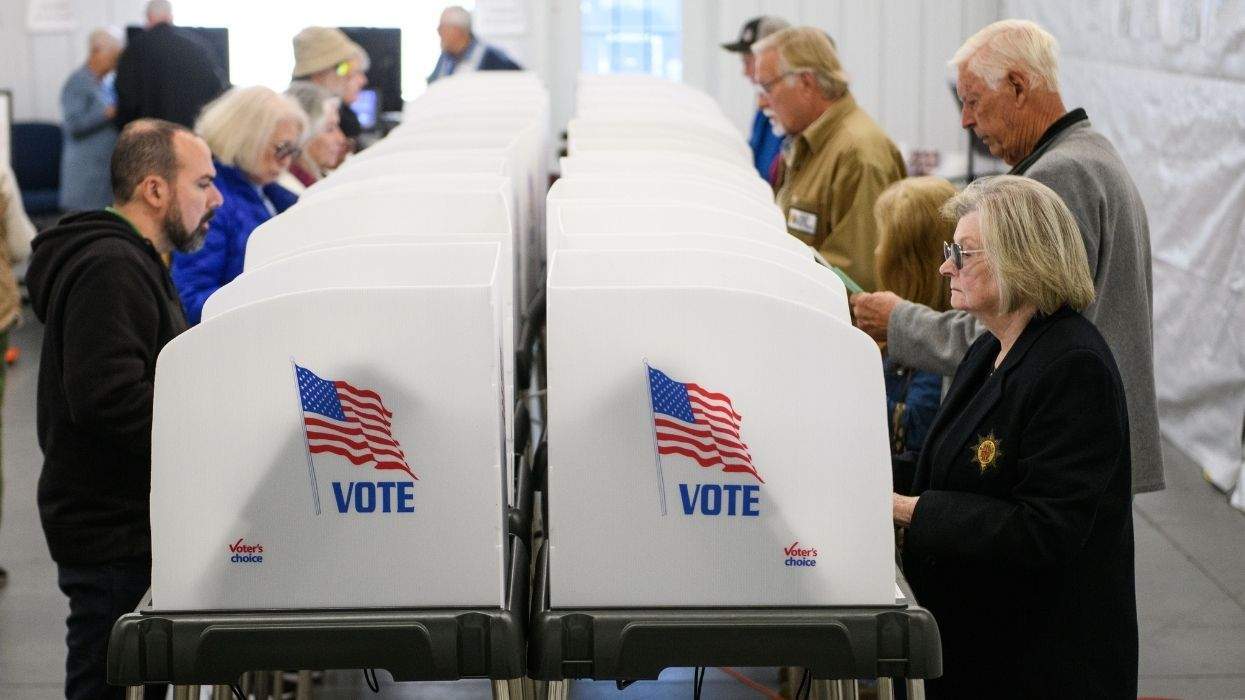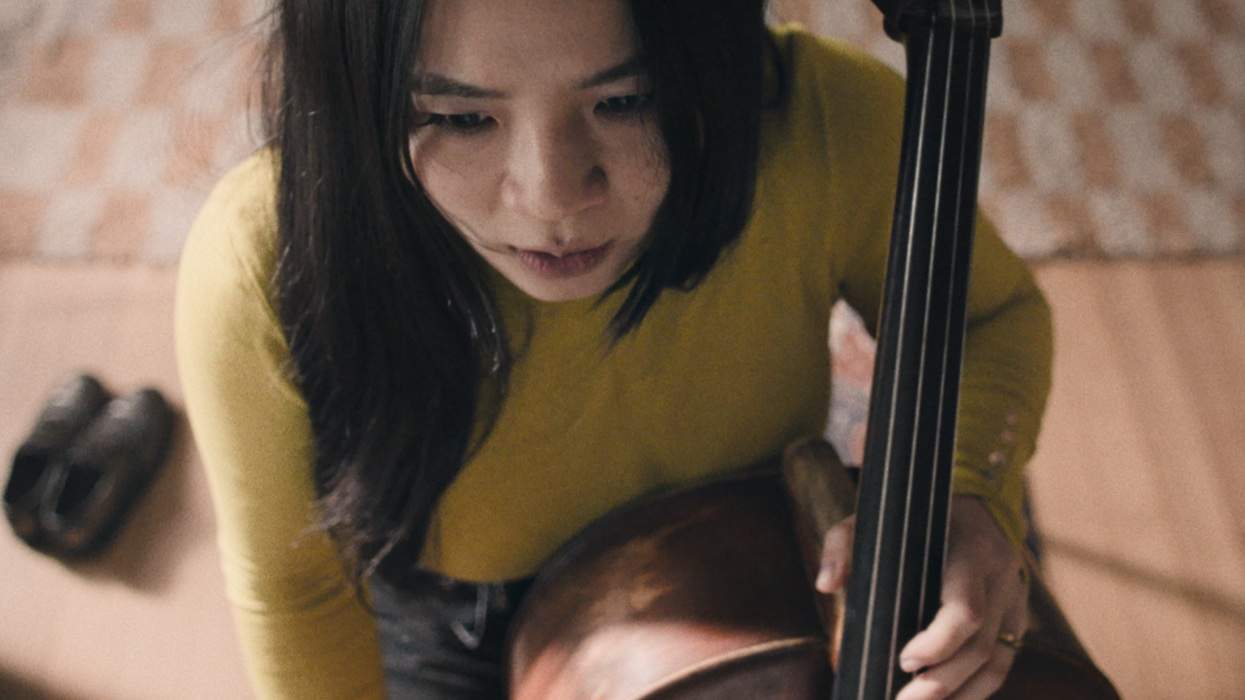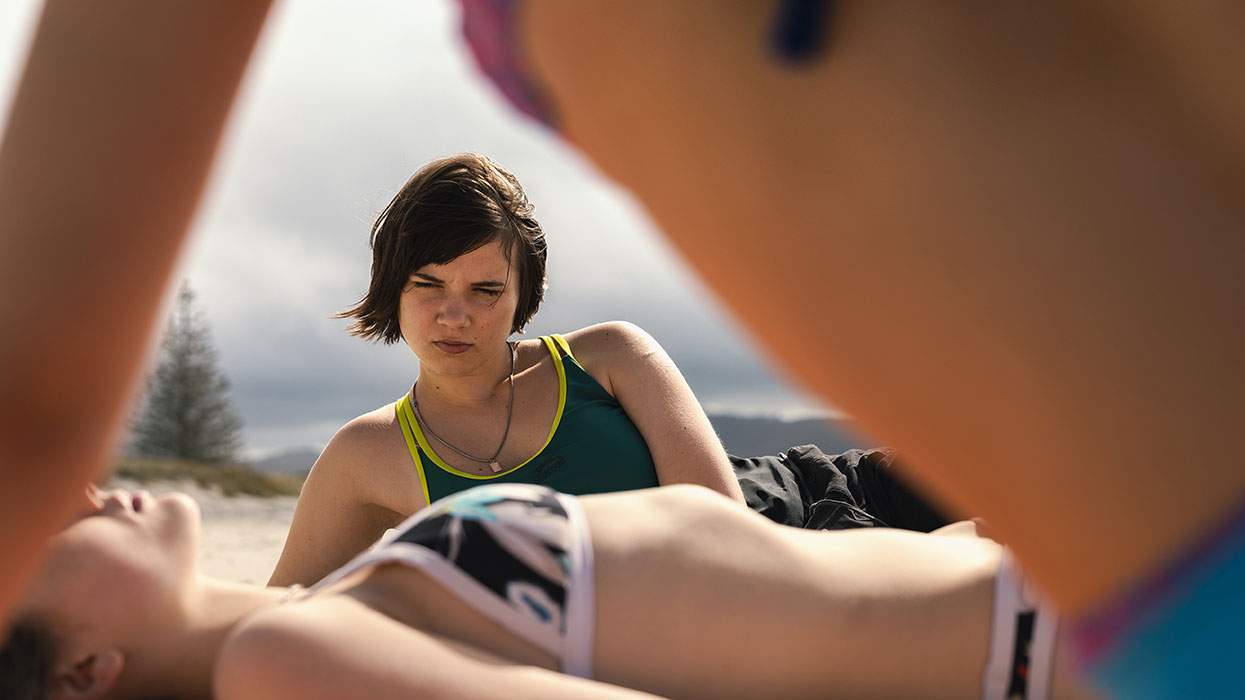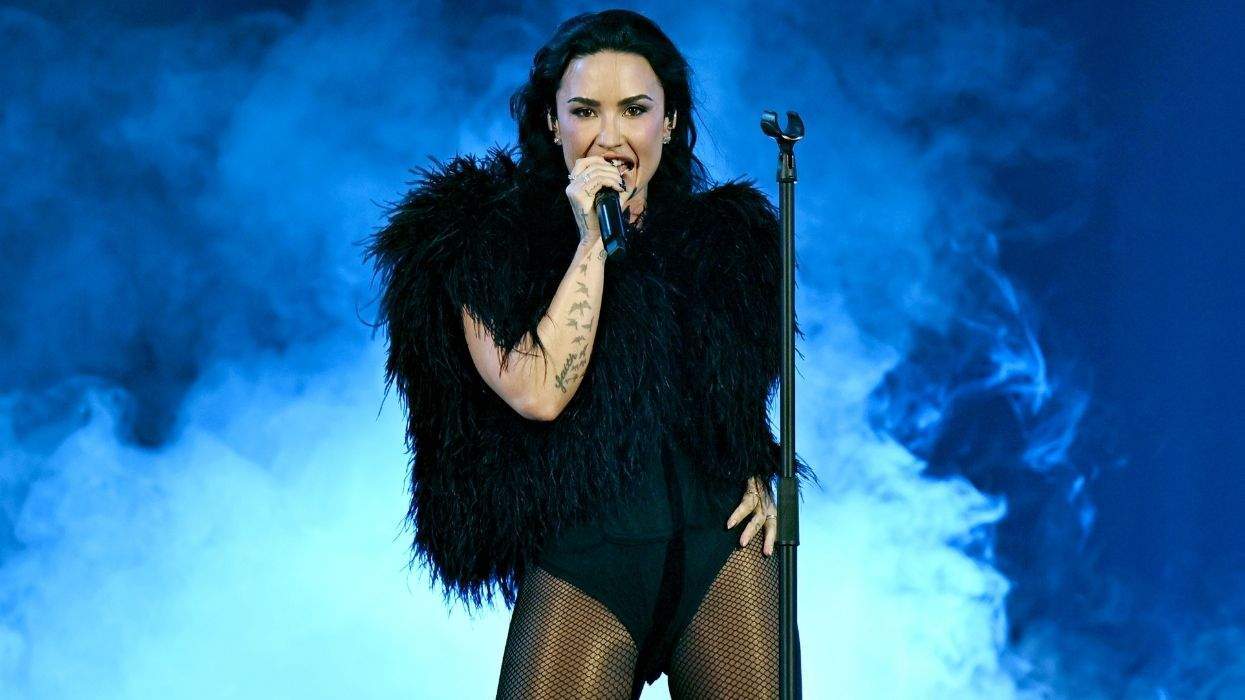Getting kinky at the movies is disheartening, at least to those of us who routinely get tied up. Every time a movie suggests bondage, we prepare to see our kinkiness diagnosed as a side effect of abuse, a manifestation of mental illness, or both (Steven Shainberg's Secretary, Roman Polanski's Bitter Moon). After Fifty Shades of Grey's cringe-worthy commercial success, we stopped wanting a kinky hero. Then Wonder Woman came soaring back into our hearts.
Sure, we loved the blockbuster starring Gal Godot that hit theaters earlier this year. But our real love is for the Wonder Woman origin story -- Professor Marston and the Wonder Women -- hitting theaters today.
To say what this film -- from out director Angela Robinson (D.E.B.S) and a queer producing team that includes Andrea Sperling and Jill Soloway -- does right requires an understanding of how others have gotten it wrong. Fifty Shades of Grey is a headache. The most commercially successful depiction of a dominant/submissive relationship in history relies on BDSM "shock value" to drive its narrative, all while presenting wrong ideas about what kink really is or how it's done.
Christian Grey, a handsome and mysterious businessman, is seen as dangerous and problematic. He scares the protagonist, Ana -- a college student with very little sexual experience. On top of being into domination and sadism, Grey is rich and powerful, while Ana is poor and a nobody. In the real world, their relationship would raise legitimate questions of coercion and manipulation. It would echo real abusers in power -- people like Harvey Weinstein and Roman Polanski (and Donald Trump). Fifty Shades toes a line, an assertion kinky people are tired of hearing: BDSM equates to abuse.
Less successful films have had similar problems. David Cronenberg's A Dangerous Method suggested masochism comes from trauma, as Keira Knightley's character confesses her affinity for getting whipped began with her father. Maggie Gyllenhaal's character in Secretary suffers from mental illness. She finds a sadomasochistic relationship with her boss, also mentally ill. Their kink plays out as a sickness.
Professor Marston and the Wonder Women does the very opposite. It takes literal rope and equates it to truth by reminding non-kinky audiences how much honesty is needed to get tied up.
William Marston, the professor and psychiatrist whose work would lead to the modern polygraph (a sort of real-life "lasso of truth") left academia (the film says he was fired) to become the creator and original writer of the Wonder Woman comic. But in Wonder Woman's early pages was a psychological experiment played out -- a testing of his own theory on human submission, which can be seen as a psychological explanation for BDSM.
Marston (played in the film by Luke Evans, who starred as Gaston in Beauty and the Beast) was a professor of psychology at American University and Tufts University in Massachusetts. During that time he developed DISC theory, which states that human behavior leans to the active or passive depending on an individual's perception of their environment.
The letters in DISC play out as follows: Dominance produces activity in an antagonistic environment. (Translated: Dominance is when you battle your environment and take control of it.) Inducement produces activity in a favorable environment (inducement is when dominant people are persuaded to behave a certain way). Submission produces passivity in a favorable environment (submissive people want to submit). Compliance produces passivity in an antagonistic environment (self-explanatory -- people are coerced into compliance by hostile regimes in threatening situations every day). Dominance, Inducement, Submission, Compliance. DISC.
On paper, Marston applied his theory to cultural issues at play in America at the time, a country involved in World War II. But behind the ruse of academia, he had a polyamorous, kinky triad relationship with his wife, Elizabeth (Vicky Cristina Barcelona's Rebecca Hall in the film), and their younger lover, Olive (The Man in the High Castle's Bella Heathcote), who sources say was the physical inspiration behind Wonder Woman's look -- she had a penchant for wide cuff bracelets. They lived together and raised children together as an under-the-radar threesome in an era when pornography was illegal (there are still attempts to ban porn, but it's been widely available to everyone with internet since the '90s, and the Supreme Court's Ashcroft v. Free Speech Coalition ruling of 2002 held that porn with consenting adults is protected by the First Amendment).
On-screen, the trio delivers a relationship that refreshingly, thankfully, never self-pathologizes. The relationship is depicted as quite the opposite. Elizabeth says once or twice that their greatest problem is the world outside -- that being the world of 1940s America, bent on protecting its children and so on. In the film, problems arise as a result of a moral crusade against Wonder Woman led by Josette Frank (Connie Britton), leader of the Child Study Association, who would later be effective in "cleaning up" the action comic and eliminating its heavy bondage and woman-on-woman action. In 1943 she sent the publisher of Wonder Woman a letter speaking out against its "sadistic bits showing women chained, tortured, etc."
The film incorporates iconography from Marston's studies, passions, and causes, including the suffrage and birth control movements that he worked into those early Wonder Woman comics. Many feminist figures used chains in their symbology and protest. For instance, British suffragist Emmeline Pankhurst chained herself to the gates outside 10 Downing St., while American suffragists threatened to chain themselves to the gates outside the White House. Woman suffragists marched in Chicago in 1916 in chains, and the woman illustrator Lou Rogers made a career drawing feminist cartoons depicting women breaking from their shackles. Marston had various connections to these movements, including the fact that his lover, Olive, was the niece of Margaret Sanger, one of the most important feminists of the 20th century.
Wonder Woman was an amalgam of Marston's own kinkiness, DISC theory, and a strong belief in feminine power. In papers studied by a researcher for the Smithsonian, Marston once said, "Frankly, Wonder Woman is psychological propaganda for the new type of woman who, I believe, should rule the world."
For kinksters, feminism and sexual power are an automatic, a basic step you must take to play with chains and paddles. Many people still see flogging and call it abuse, refusing to understand the consent and freedom that goes into submission. Taking a sexual journey with someone you trust is more than healthy: It's equalizing, empowering, and promotes an autonomy of self that often isn't seen from the outside -- by directors toying with kink, using BDSM as shock-value "pain porn" to sell tickets, or auteurs being "edgy." It's not "edgy," not to us. Even if we love its edginess -- even if our sex lives are spent pursuing that edge where pain and pleasure meet -- that pursuit is not born of trauma, nor is it traumatizing for our playmates, at least not when you do it right. Some of us have experienced trauma and find ways back to healthy sex through kink. That is hardly evidence of the dangers of BDSM -- if anything, that's evidence of its safety.
If past films taught audiences how scary kink is, Professor Marston and the Wonder Women is a glimpse into what our lives are really like -- how we find our fetishes, and how our relationships are still attacked from the outside. Kinky people aren't Christian Grey. We're Diana of the Amazons, punching Nazis and making men kneel.
ALEXANDER CHEVES is an Atlanta-based writer. Follow him on Twitter @BadAlexCheves.
















